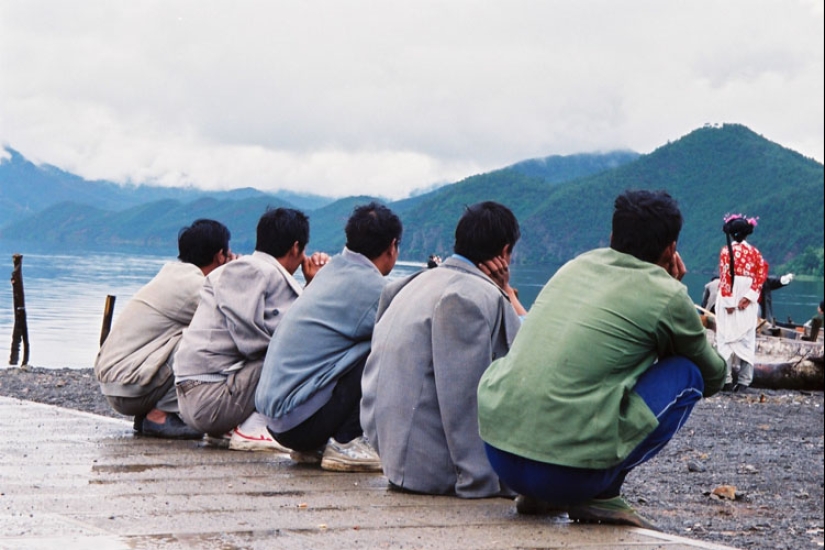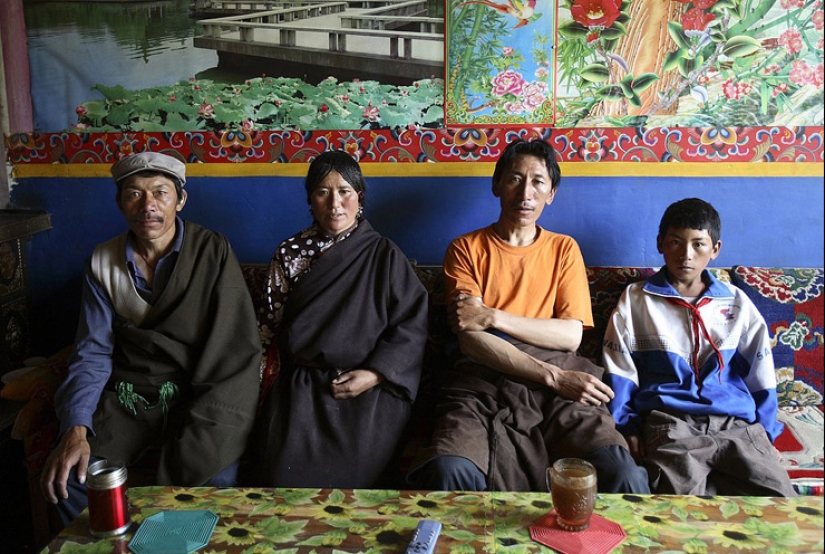One for all: why in Tibet do brothers marry the same girl?
Categories: Asia | Culture | Society
By Pictolic https://pictolic.com/article/one-for-all-why-in-tibet-do-brothers-marry-the-same-girl.htmlIn most countries of the world, polygamy and polyandry are prohibited. Despite this, the practice continues to thrive in some isolated communities. For example, in Tibet, which, although it is part of the People's Republic of China and is formally subject to Chinese laws, lives according to its own canons that have been established for centuries. Polyandry exists freely in the mountains and the case of several men having one wife is not at all uncommon.

Tibet, once occupied by the People's Republic of China, is considered a troubled region. People there live in isolation, without documents, have no access to the media and generally no desire to live according to the imposed rules. Therefore, even the famous one-child policy that operated in China did not work in these parts. Tibetan families had as many children as they wanted.

It turns out that the mountaineers have no shortage of women. Why then do many families marry several brothers to the same girl? The reason for this is deeper. There is very little fertile land in this region, so it is not easy to feed yourself. There are mountains around that are not suitable not only for farming, but also for grazing livestock. Tibetan shepherds have to travel huge distances with their herds so that the yaks or sheep do not starve.
If someone has a small plot of land where they can grow at least something, then this is a great success. But according to Tibetan law, parental property, including land, is divided equally between sons. Daughters do not participate in the division of inheritance, since they are married off to other families. But there’s not much to share even between brothers. Families often have three or more heirs, each of whom is entitled to a land plot.
Once upon a time, land plots were distributed according to conscience. But this did not lead to anything good. The plots were eventually shredded and it became incredibly difficult to feed from them. Even a solid field was cut into “shreds” over 3-4 generations, which were barely enough to build a house. Therefore, the tradition of polyandry arose to help solve this vital problem for Tibetans.

First, the eldest brother marries, and then, as he reaches the required age, the rest also marry his wife. Of course, this is not documented. Still, polyandry is prohibited by law. A family of several husbands and one wife simply begins to live together and run a common household. Legally they are not one family, but in essence they are one unit of society.
The family lives on the same land, which no longer needs to be divided between brothers. There are no disagreements with the law, because nowhere is it prohibited for relatives to live under the same roof. If an inspector comes, he is presented with one marriage certificate, which indicates the husband and wife. The rest are just my husband's brothers, living with him and helping with the housework. Of course, officials know about the catch, but they have nothing to complain about.
How does a woman who has several husbands feel in this situation? Apparently excellent. She is the queen of a large family and she is allowed a lot. She can choose her “favorite husband” and feel sorry for him, shifting the hard work to his brothers. The wife in such a family can arrange her intimate life at her own discretion. If she wants, she will let everyone into her bed, and if this does not suit her, she will cohabit with one. Although the second option is extremely rare.

If one of the spouses has shown his unsuitability for family life, for example, he turns out to be lazy, drinks or offends his wife and children, the woman can easily kick him out the door. Before this, the issue needs to be discussed with the mother-in-law, who, of course, will ask for her unlucky son. The wife may give a second or even a third chance, or she may insist on a “divorce.”
The expelled spouse's share is unenviable, since he no longer has access to the farm and home. He has little choice - go to a monastery or become a worker for some rich man. But most often, harmony and mutual understanding reign in Tibetan families. Responsibilities are clearly distributed among all its members and there is no place in the house for the lazy and jealous.

That's right - jealousy in families with several husbands is completely absent. The centuries-old practice has completely changed the Tibetans' outlook on life. For them, such a family does not seem strange or unnatural. This is as normal for them as it is for the Chukchi to exchange wives.
Recent articles

It's high time to admit that this whole hipster idea has gone too far. The concept has become so popular that even restaurants have ...

There is a perception that people only use 10% of their brain potential. But the heroes of our review, apparently, found a way to ...

New Year's is a time to surprise and delight loved ones not only with gifts but also with a unique presentation of the holiday ...